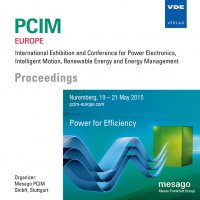Comparative Evaluation of Modeling Methods for Harmonic Stability Analysis of Three-Phase Voltage Source Converters
Konferenz: PCIM Europe 2015 - International Exhibition and Conference for Power Electronics, Intelligent Motion, Renewable Energy and Energy Management
19.05.2015 - 20.05.2015 in Nürnberg, Deutschland
Tagungsband: PCIM Europe 2015
Seiten: 9Sprache: EnglischTyp: PDF
Persönliche VDE-Mitglieder erhalten auf diesen Artikel 10% Rabatt
Autoren:
Kwon, JunBum; Wang, Xiongfei; Bak, Claus Leth; Blaabjerg, Frede (Dept. of Energy Technology, Aalborg University, Pontoppidanstraede 105, Room 3.112, 9220, Aalborg, Denmark)
Inhalt:
As the increasing of power electronics based systems, not only the component-based analysis but also a systematic interaction analysis with each other systems are being important. Especially studies about the stability and the harmonics interaction are critical in order to establish the required performance in a power network. However, the traditional small-signal modeling approaches are not enough to represent the complexity of the interaction due to the time varying components of such systems. This paper compares the small-signal modeling methods for harmonic analysis of AC - DC converters and discusses their advantages and limitations. The Harmonic State Space (HSS) model based on the Linear Time-Periodically varying (LTP) system and the traditional small signal model based on the Linear Time-Invariant (LTI) system are evaluated. The results show that the HSS model presents superior performance for the AC-DC converters with a low ratio of switching to the fundamental frequency, and it provides an effective way to reveal the harmonic interaction and stability analysis for the future power electronics based power systems.


